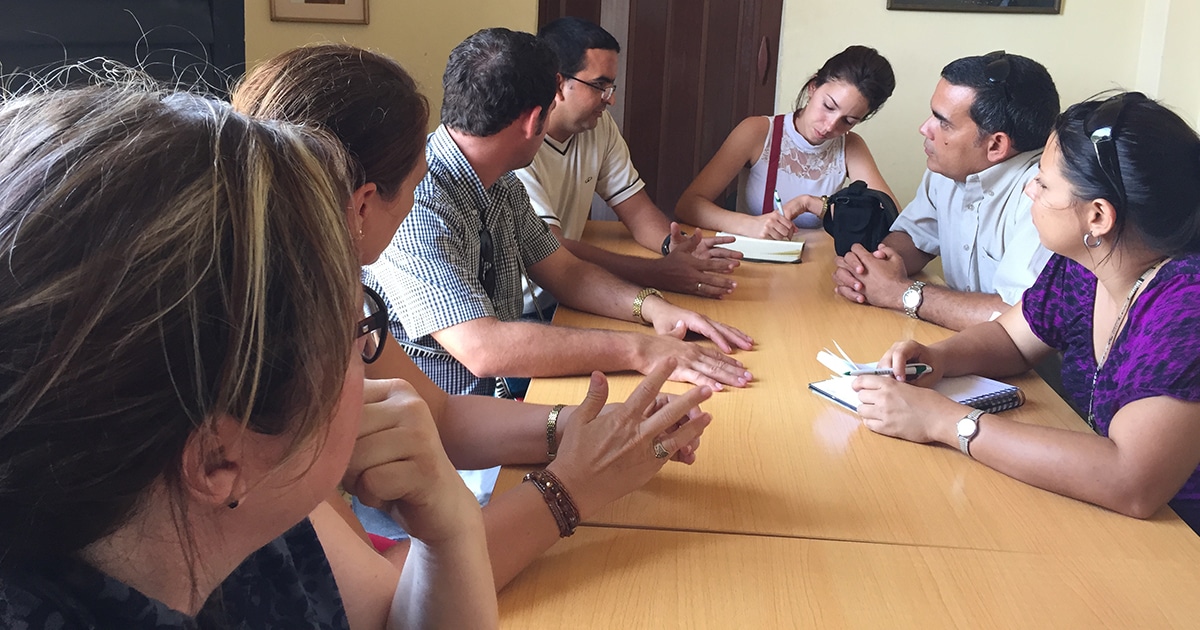When the eighth Justice Camp begins on April 30 in Matanzas, Cuba—the first time the event has taken place outside Canada—its participants will include 25 Canadians and 25 Cubans, brought together by their common faith in Christ and a shared commitment to social justice.
Justice Camp 2016 is organized by the Episcopal Church of Cuba, the Anglican diocese of Niagara, the Primate’s World Relief and Development Fund, and the General Synod of the Anglican Church of Canada, along with a $10,000 grant from the Anglican Foundation of Canada. Focusing on economic justice, food security and social engagement, the camp is the latest example of a close partnership between the Canadian and Cuban churches that has flourished for more than half a century.
“It’s another moment on the journey that we fully anticipate for another 55 years,” said General Synod Director of Global Relations, Andrea Mann, noting that the upcoming camp “lifts up our close bonds of affection and companionship and work together … It focuses on issues of local justice-making that are important for Canadian Anglicans and Cuban Anglicans.”
The strong relationship between the Anglican Church of Canada and the Episcopal Church of Cuba dates back to the aftermath of the 1959 Cuban revolution, which saw the onset of a decades-long blockade by the United States government and the cessation of normal diplomatic relations between the U.S. and Cuba.
Formerly a diocese of the Episcopal Church USA, the Cuban church became an independent entity. But reflecting the maintenance of diplomatic relations between the Canadian and Cuban governments, the Anglican Church of Canada continued relations with the Cuban church.
The relationship between the Canadian and Cuban churches has been formalized through the Metropolitan Council of Cuba, on which the Primate of the Anglican Church of Canada serves as chair. A number of mission priorities have helped shape and deepen the relationship between the Canadian and Cuban churches over the years:
- Theological education, a major focus of resource sharing. The Anglican Church of Canada provides an annual grant to the Episcopal Church of Cuba to help fund the Evangelical Theological Seminary in Matanzas as well as stipends for the two Episcopal full-time faculty on staff at the seminary, and supports a distance education program for Episcopalian seminarians. Meanwhile, the Cuban church receives Canadian theological students as interns to provide them with three months of parish immersion.
- Poverty alleviation among paid ministry staff of the Episcopal Church of Cuba. Depending on their responsibilities, the average monthly salary for a Cuban priests ranges between 45 and 60 U.S dollars per month. Part of the Canadian church’s annual grant helps cover some of the living costs for clergy.
- Primary evangelism at summer camps hosted by the Cuban church for children, teenagers and adults. The Anglican Church of Canada helps support the camps, which help participants learn about Jesus and the church.
- Rebuilding parishes has become a major priority under Bishop Griselda Delgado del Carpio, current diocesan bishop of the Episcopal Church of Cuba. Many church buildings in Cuba have deteriorated over decades of blockade and isolation, with the collapse of the Soviet Union leading to a further decrease in access to building supplies. Funds from the Canadian church help support rebuilding efforts.
A key aspect of the partnership between the Canadian and Cuban churches is the companion diocese relationship between the diocese of Niagara and the diocese of Cuba, which manifests itself through mutual prayer for each other, offering ways for people and parishes to experience ministry in each other’s contexts, building relationships to foster ministries and learn from one another, and supporting ministry projects.
Noting that the 2016 Justice Camp provides an opportunity to raise awareness within the Anglican Church of Canada about the Episcopal Church of Cuba and its ministries, Bishop Michael Bird of the diocese of Niagara expressed his hope that the camp would further deepen the relationship and partnership in mission between the two churches.
“We’ve already seen this happen through the planning process,” Bishop Bird said. “But it’s also a tangible way in which people from both our dioceses can live into their baptismal promises by more fully learning and living into local and global justice making.”
Interested in keeping up-to-date on news, opinion, events and resources from the Anglican Church of Canada? Sign up for our email alerts .

